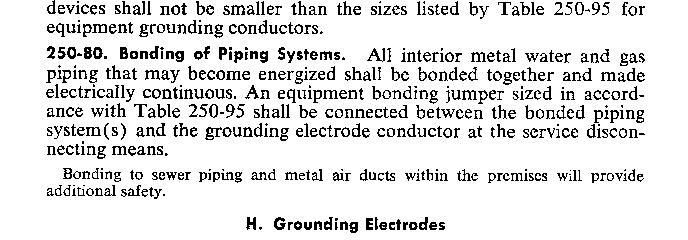- Location
- Illinois
- Occupation
- retired electrician
If there is no reason to rebond the interior metal water piping system after a repair that leaves a large part of the metal interior water piping system unbonded, is there are real reason to bond it in the first place? Maybe it should be like "other metal piping systems" where the EGC for the equipment that is connected to the water piping system is all of the bonding that is required. What makes the interior metal water piping differnt from other metal piping systems?For many years the NEC mandated that metal water pipes be made electrically continuous but then the members of the CMP said that the electrician could not follow the plumber around every day and install jumpers when a non-metallic repair was made on a metal water pipe. The CMP also knew that the plumber was not an electrician so mandating that they make any repair electrically continuous was not justified.
So now I have installed the bonding across the water heater and along comes a plumber and makes a repair who is charged with ensuring that the system stays electrically continuous?
It is nothing more than silly.

